Description
ABSTRACT
An Analysis of Liabilities for Misstatement in Prospectus in Public Offer for Securities in Nigeria
Akin Oluwadayisi*
The idea of raising fund from the public through the issuance of prospectus or statement in lieu of prospectus has witnessed a new corresponding responsibility on the part of individuals involved in the making of the statement in prospectus for the company issuing public securities in Nigeria. Unlike what obtained in the past when the concept of corporate liability prevailed over individual liability, with the coming into effect of the Securities and Exchange Commission (SEC) Rules 2013, the paradigm shift on individual liability in corporate affairs where the ‘veil’ is lifted, reassures investors that certain persons can be held responsible for misstatement in the prospectus or statement in lieu. This article examines the new requirements for the issuance of prospectus or statement in lieu by public companies under the SEC Rules and the corresponding civil and criminal liabilities of individuals involved for misstatement. It submits that the liability imposed on persons for misstatement will ensure professionalism and prevent fraud, misrepresentation and taking undue advantage of innocent investors.
INTRODUCTION
Nigerian Corporate law deals with companies, private and public, as well as other corporate and regulatory bodies established by statutes.1 For example, the Companies and Allied Matters Act (CAMA) provides for different types of companies, which are companies limited by shares, companies unlimited by shares and companies limited by guarantee.2 It then further states that ‘a company of any of the foregoing types may either be a private company or a public company’.3 Now, it is with respect to public companies that this article examines prospectus, statement in lieu of prospectus and liabilities in the issuance of securities of public companies in Nigeria.4 A public company is defined as any company other than a private company whose memorandum shall state that it is a public company.5
So, the issuance of prospectus or statement in lieu (i.e. statement instead of prospectus) is a pre-requisite for any public company with a view to invite members of the public to buy its shares or other securities.6 Section 50(3)(e) CAMA even provides that where a private company is changing its status to that of a public company, its application for re-registration from private to public company must be accompanied with a prospectus or statement in lieu of prospectus delivered within the preceding 12 months to the Securities and Exchange Commission established under the Investments and Securities Act (ISA).7
However, the motive behind the public issuance of prospectus or statement in lieu which is to raise fund from members of the public may not be realised where close attention and monitoring is not given to the content of the prospectus which spells out how the capital is to be raised and value added statement of professionals involved in the issuance. Hence, the SEC Rules 2013 imposes responsibilities on the part of individuals involved in the making of the statements contained in the prospectus for the company
issuing public securities in Nigeria.
* LL.M, BL, ACIArb. Lecturer, Commercial Law Department, Faculty of Law, Adekunle Ajasin University, Akungba-Akoko
- The Long Title to Companies and Allied Matters Act Cap C20 LFN 2004 describes it as ‘An Act to establish the Corporate Affairs Commission, provide for the incorporation of companies and incidental matters, registration of business names and the
incorporation of trustees of certain committees, bodies and associations’ - Section 21(1) of CAMA
- Section 21(2) of CAMA
- Nielson, Seigvald, ‘The Issuance of Securities under the English Companies Act’ (1933) Virginia Law Review 88-102
- Section 24 of CAMA
- Motley, Warren, Charles Jackson Jr, and John Barnard Jr., ‘Federal Regulation of Investment Companies Since 1940’ (1949) 63
Harvard Law Review 1134 - Sections 75, 83 (1) ISA 2007

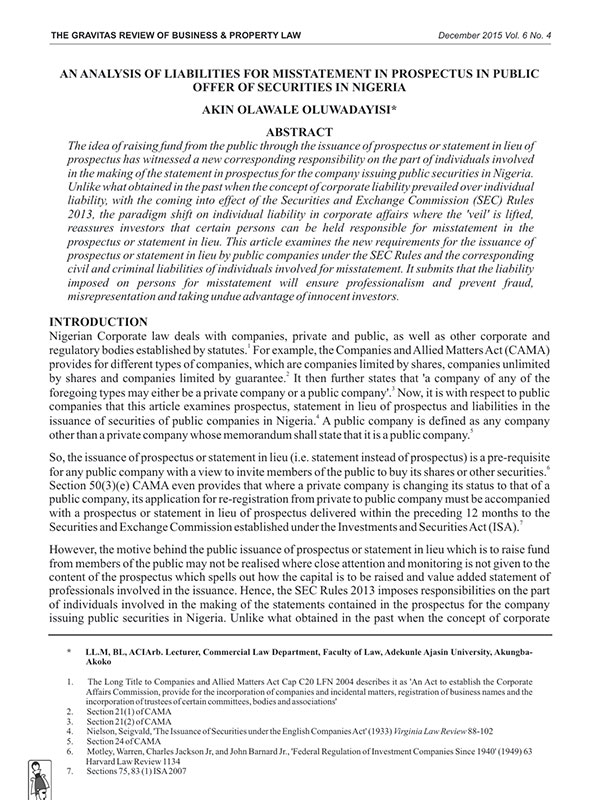
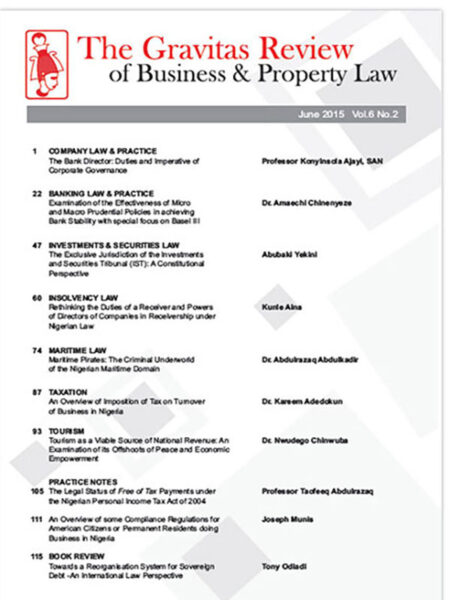
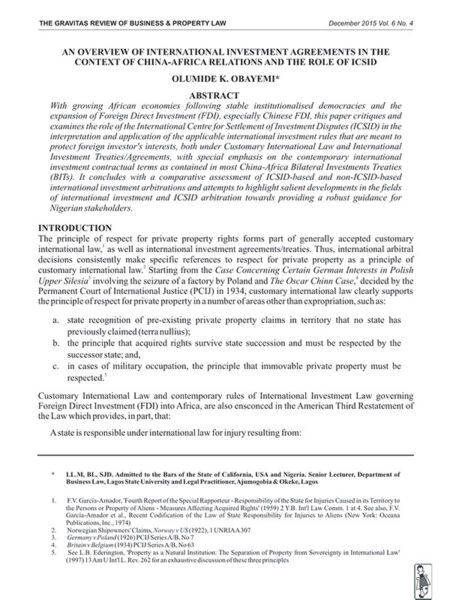
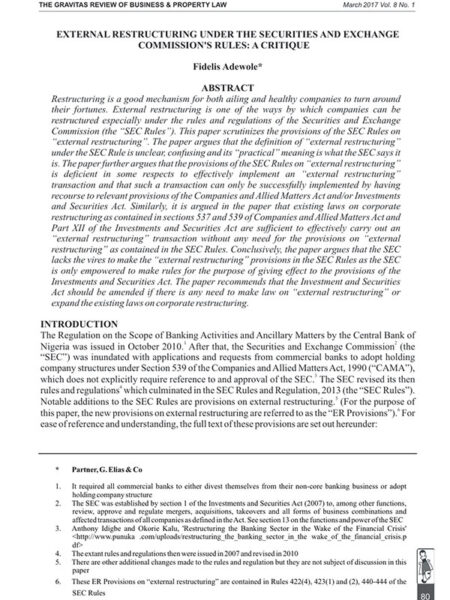
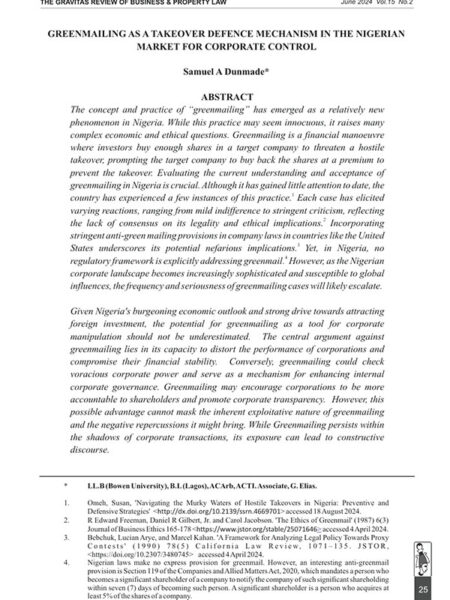


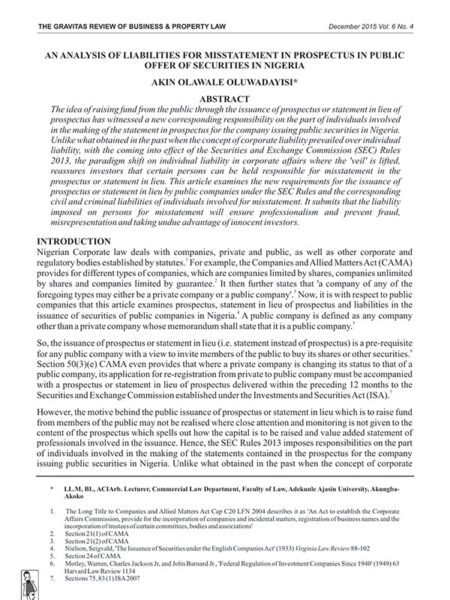
Reviews
There are no reviews yet.